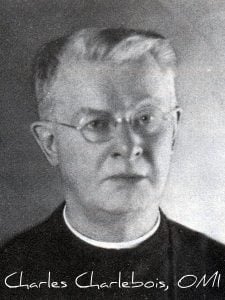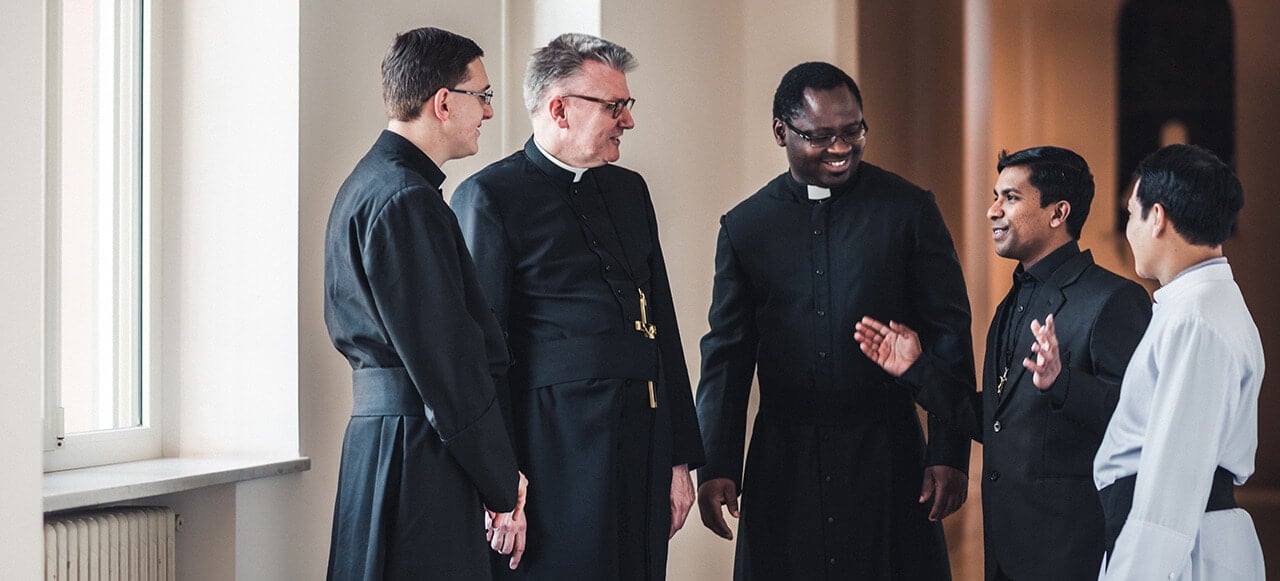On March 27, 1913, a new French language newspaper appeared in Ottawa: Le Droit. The four thin and badly printed pages provoked the laughter of some and excitement for others. At this moment the Franco-Ontarians were facing a crucial danger for their language. The notorious Statute XVII, passed by the Ontario Legislature in 1912, contained nothing else but the death knell of the French language for some 200,000 pioneers of that province. We can judge from these articles: 1. French cannot be taught in the classroom; 2. Teachers are forbidden to communicate with their students in that language; 3. All the inspectors are accountable to English speaking inspectors. This unusual law dealt with punishment, fines and prison for transgressors.

Banding together as the “Association d’Education d’Ontario”, right-minded professionals, well-informed officials like Samuel Genest, Napoleon Belcourt, Aurelien Belanger, and with them most of the pastors in the Province, the Oblates, the Dominicans, along with hundreds of other “patriotes”, were all stimulated and inspired by Father Charles Charlebois, OMI, the soul of this movement. They decided to start a newspaper so as to safeguard their language. Father Arthur Joyal, OMI provided the name: Le Droit. A motto was chosen: L’avenir est à ceux qui luttent (The future belongs to the fighters). Day after day well documented articles appeared, responding to Prime Minister Ferguson, for whom bilingualism would constitute “a national outrage that could unsettle the foundations of the Dominion. One flag, one language.”
A providential intervention
Until the perverted statute was suppressed, on September 22, 1927, the intervention of Divine Providence had often been needed to refill the coffers of this poor daily paper. The early workers recall with emotion what they have named “the miracle of Le Droit”. On a very troubled day, when the process-server, watch in hand, was preparing to announce that the newspaper would be taken over and closed at precisely five o’clock unless he received the $5000 that was owed, someone told Father that an unknown old man desired to speak to him. Visibly upset, Father Charles responded rather coldly: “All right, let him in, but he’d better be brief.” Unfortunately men of that age are never brief. The man entered, slowly removed his mittens, and arrived at his topic by a thousand detours:
“You see, Father, we had the intention of building ourselves a porch. We live in the village, and for old folks like ourselves, sitting in rocking chairs on the porch and watching the cars to by is a pleasant distraction is it not?”
“Well, my dear man, build your porch, I have no objection. Is that what you wanted to tell me?”
“Yes, and no” responded the good man. “That isn’t the end of my story. Last week I went on a closed retreat. I heard Father Rodrigue Villeneuve’s beautiful conference on Catholic activities. So I spoke of this with my good woman and we changed our mind. Father helped us to understand that we Catholics should invest our money in good works. When I spoke to him about my concern, he gave me your address.”
Father Charles responded: “We accept investments”
“As far as I’m concerned, so long as you pay me the interest until I die, I’d just as soon give you the capital.”
“And how much do you have?”
“$3,000. If you would like to, we can get this over with right now. I have all the money with me; here, count it.”
“Wait,” said Father Charles, full of emotion. “Let me get on my knees to receive this money. It falls directly from heaven.”
